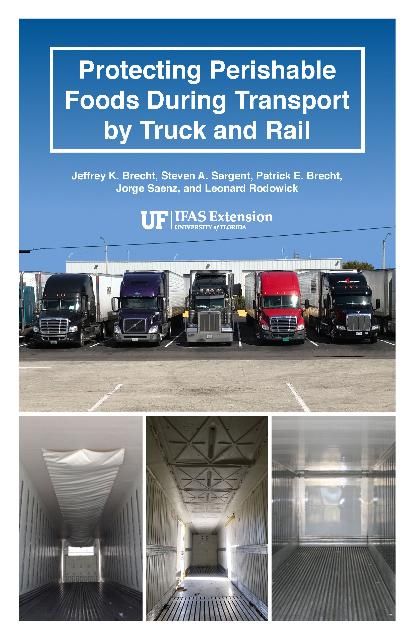This is a revision of handbook No. 669, last revised in 1995, which was itself a revision of the 1987 handbook. Handbook No. 669 superseded Agriculture Handbook No. 105, Protecting Perishable Foods During Transport by Motortruck, first published in 1956 and revised in 1970.
The importance of protecting perishable foods from loss of quality during transport has long been recognized. Increased recognition of the importance of the transport link in the food distribution cold chain in securing the safety of perishable foods has more recently become as well recognized. Thus, an updated version of this handbook has been long overdue, addressing both the advances in technology and the importance of food safety considerations in the transport of perishable foods.
This updated edition reflects the dynamic changes and innovations in the handling and transportation of perishable foods. Some of these include improved insulation and air movement, microprocessors for more efficient refrigeration, expert systems to control the transport environment and conserve fuel energy, and the use of telematics to monitor and control the performance of refrigerated vehicles during transit. This edition includes descriptions and recommendations for food transported over the road and by rail in marine containers, as well as in railcars.
204 pp., 13.2 MB

Contents
I. Important Factors in Protection of Perishable Foods
II. Preparation for Loading
III. Loading and Unloading Considerations
IV. Loading (Stowage) Patterns
V. Individual Commodity Requirements
VI. Regulatory Considerations for Truck Construction Materials, Cleaning Compounds, and Sanitation
VII. Food Safety Considerations for Transporting Perishable Foods by Truck
Appendices
Selected Bibliography
Other Resources